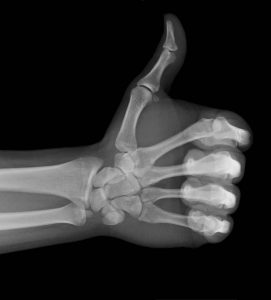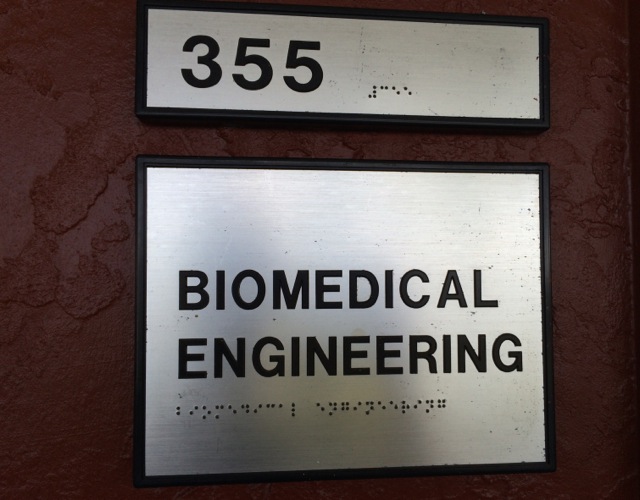Biomedical Engineering: Your Questions Answered
What is biomedical engineering?
Biomedical engineering is a vast interdisciplinary field that pulls together elements from mechanical, electrical and chemical engineering as well as biology and computer sciences. There are many specialties within the realm of biomedical engineering including: designing medical devices and prosthetics (biomechanics), biomaterials and tissue regeneration (I happen to be taking a class on this very subject this semester), medical imaging, bioinstrumentation and many more. The goal of a biomedical engineer is to use a variety of experimental and analytical techniques to help solve biological and medical problems. It also has the goal of helping to improve quality of life.

What kind of facilities can I work at as a biomedical engineer?
A biomedical engineer may find work at small research companies, in industry, hospitals, universities, governmental facilities, etc.

Which locations are most popular for biomedical engineering jobs?
States with the highest reported employed biomedical engineers include: Florida, California, Texas, Minnesota, Indiana, Ohio, Pennsylvania, Maryland and Massachusetts. Personally, here in Florida, I am very excited about the developing “Medical City” in the Lake Nona area. Companies such as Sanford-Burnham Medical Research Institute, UCF Health Sciences , VA Medical Center, Nemours Children’s Hospital and University of Florida’s Academic Research Center can be found here, and it is still growing! I see great potential for biomedical engineering employment in this area.
Bachelor’s, Master’s or Ph.D.? What do I need to work as a biomedical engineer?
Technically, you don’t need anything higher than a bachelor’s degree to work as a biomedical engineer. Getting your masters or Ph.D. degree gives you additional experience and allows you to specialize in a specific field. The higher you go with your education, the more focus your specialization will have. With a bachelor’s degree, you might pursue an entry level engineering or sales position in a medical device, pharmaceutical, biomaterials or biotechnology company. A master’s or doctoral degree offers greater opportunities in the way of research and development within industrial, academic, medical or government settings.
How much money will I make as a biomedical engineer?
According to the US Department of Labor, the mean pay for biomedical engineers in 2012 was $86,960 annually and $41.81 per hour.

What is the job outlook for biomedical engineers?
Job outlook for biomedical engineers is great! The Bureau of Labor Statistics states “employment is expected to grow 27% from 2012 to 2022, which is much higher than the average for other occupations.”
Why should I choose biomedical engineering as a career?
I’d like to answer this question by summarizing what working as a biomedical engineer looks like to me. Working as a biomedical engineer will be: fulfilling, hard work, rewarding, learning and working with cutting edge science. I also look forward to working with an aging population in need of ever more demanding medical care.
Where can I find more information about biomedical engineering?
Check out Florida Tech’s College of Engineering website!
%CODE1BIOMEDICALENGINEERING%





